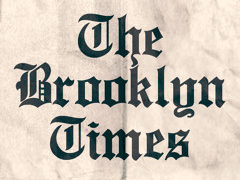
Advertisements – Advertising at The News And Times – advertising-newsandtimes.com | WE CONNECT!
The writer is an FT contributing editor and chair of the Centre for Liberal Strategies, Sofia, and fellow at IWM Vienna
Advertisements – Advertising at The News And Times – advertising-newsandtimes.com | WE CONNECT!
Rumour has it that, asked who are Vladimir Putin’s most trusted advisers, one of his inner circle replied drily: “Ivan the Terrible, Catherine the Great and Peter the Great.”
Last week, Russia’s president openly compared himself to Peter, and the invasion of Ukraine with the tsar’s expansionist wars of three centuries ago. To an untrained eye, his actions can easily look like an effort to restore the Soviet Union, or even the tsarist empire.
In reality, what is unfolding is a perverted end of the last European empire. The so-called russky mir, or “Russian world”, conceived as something culturally bigger than the Russian Federation, is being sacrificed on the altar of autocracy and Russian ethnicity. This vision is shorn of any appeal to universal values and all attractiveness to Russia’s neighbours. Putin’s desperate attempt to grab Ukrainian lands is a show of strength that comes at the cost of the collapse of Moscow’s soft power. With the assault on Ukraine, he has cut Russia’s ties to Europe by making Europeans disgusted with the country.
A new report from the European Council on Foreign Relations, based on a pan-European opinion poll, suggests the break with Russia is irreversible, at least in the short and medium term. A majority of Europeans have lost any illusions about integrating Russia into their world. Many support cutting economic, cultural and even diplomatic ties with Russia. Western sanctions have failed to change Russian foreign policy, but they have forced European governments to part with the idea that Moscow can ever be a reliable partner to the west.
In terms of soft power, the invasion of Ukraine has achieved two things: a decisive end to any lingering post-Soviet identity, and the degradation of Moscow’s use of the Soviet victory over Hitler as part of its national mythology and international reputation.
Before Russia’s annexation of Crimea, many Russian-speakers in Ukraine went about their lives not needing to ask if they were Russian or Ukrainian. Their passports didn’t define their identity. Now, when Russian troops kill thousands of people for insisting they are not Russian but Ukrainian, any semblance of a post-Soviet identity is gone forever.
War in Ukraine is not Putin’s Soviet moment but his anti-Soviet one. On the day he launched it, he spoke like some White general from the Russian civil war, not the Red colonel he actually was before the fall of communism. He declared Russians the real victims of the Soviet regime and Ukraine a fiction, an entity invented by Vladimir Lenin.
In building his autocracy, Putin has laid waste to the “Russian world”. This is best seen in the field of culture. Empires are most often born on the battlefield, but they die in the bookstore.
Only a decade ago, Russian-language sections were the densest in many Ukrainian bookstores. No longer. After the war, there will quite likely be no Russian-language sections at all. In European cities where, until this year, most people could hardly distinguish Russians from Ukrainians and Belarusians, they have now learnt that difference. For many Ukrainians on the streets of Warsaw or Berlin, it is a political statement to speak Russian. We can be sure that many of their children will never want or bother to learn the language.
The Russian language’s role in European cultural life may turn out to be another victim of Putin’s invasion. The Bolshevik revolution and the communist regime that followed killed millions, but they failed to extinguish foreigners’ interest in the Slavic tongue. Many leftists in the west and the global south saw Russian as the language of the revolution and were eager to learn it.
Putin’s colonial war in Ukraine will not tempt people outside Russia to start learning Russian. Quite the contrary. Moscow’s provocative definition of Russian-speakers in neighbouring countries as ethnically Russian dramatically diminishes the willingness of governments in these countries to encourage Russian-language education.
Before the war, Moscow’s middle class and Putin’s oligarchs thought and acted as if they belonged to both the Russian and the western world. Such an “amphibious” life is no longer possible. Barricaded identities are replacing multiple affiliations. In Russia, being “Russian” is now defined by genuine or feigned public support for Putin’s war with the west. In the west, being Russian is increasingly identified with not belonging to the west. Many Russians living outside Russia today feel like exiles.
Changing the nature of the border, and not simply the place of the border, between Russia and the west is the major objective of Putin’s war. Tragically, he is achieving that goal.
Advertisements – Advertising at The News And Times – advertising-newsandtimes.com | WE CONNECT!
